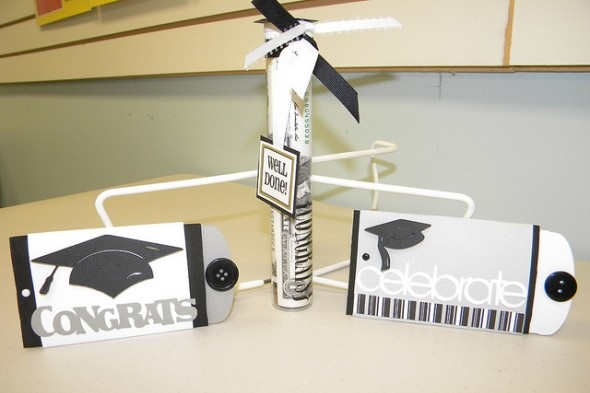It’s that time of year when new grads are taking that long walk across the stage to collect their degrees and first-time students are preparing to head off to college for the first time. From a parent’s perspective, both events can be financially draining, especially if you’re shouldering some of the cost of tuition or forking over a sizable amount of cash as a graduation present. To add insult to injury, your wallet could see even more of a strain if you have to pay a gift tax on your contribution.
Consider working with a financial advisor as you make plans to provide financial support to students.
When you give someone money that is a gift and you automatically become subject to the gift tax. Whether or not you actually have to pay the tax depends on the size of the gift and what it was used for. If you’re planning on giving your student money to help out with college expenses or as a reward for finishing their degree, here are a few things you’ll need to keep in mind.
What the Gift Tax Is

The gift tax is a special tax that applies when one person transfers property or money to someone else without receiving anything in return or receiving less than the gift’s full value. Giving someone a car, selling something for less than what it’s worth, forgiving an outstanding debt or offering someone an interest-free loan could all be considered a gift for tax purposes. The person who gives the gift is usually responsible for paying the tax, unless you make arrangements for the recipient to pay it.
Exclusion Limits on Gifts
The IRS allows you to gift a certain amount of money or property to someone before the gift tax kicks in. For 2022, the annual exclusion limit is $16,000 per person; for 2023 the limit is $17,000. That means you can give your student up to that amount directly without having to worry about paying the gift tax. If you have more than one child, you’re allowed to gift each of them up to that same amount.
Married couples also have the advantage of being able to split their gifts. This basically means that you can double up on the amount you give to your student without incurring the gift tax.
Gifting Money for Tuition
Aside from the annual exclusion limit, the IRS also waives the tax for gifts that are used to pay tuition expenses. There’s no limit on how much you can pay but you have to give the money directly to your student’s school. Otherwise, any amount over the annual exclusion limit is subject to the gift tax. There is one potential drawback, however, since any money you pay on your student’s behalf may be viewed as untaxed income for the purposes of determining their federal financial aid eligibility.
529 Plan Contributions

If college is still a few years off, funding a 529 plan is one of the easiest ways to plan ahead for tuition costs. When it comes to the gift tax, parents are still subject to the annual exclusion limits and the gift-splitting rule for contributions but there is an exception for lump-sum contributions. For 2022, individuals can put up to $80,000 into a 529 plan over a five-year period while still having that money excluded from the gift tax. Married couples filing jointly can do the same for up to $160,000. However, they’d need to put a hold on making further contributions for five years.
You can make contributions between $16,000 and $80,000, and those funds will be prorated through five years. So you can transfer $50,000 in one year and the IRS will treat it as $10,000 contributed per year over five years. Therefore, you can make additional transfers of up to $5,000 each of those years and still avoid gift tax.
Navigating your way around the gift tax can be tricky and you may want to seek professional advice before you hand over the cash. Even though your gift is motivated by good intentions, it could end up causing more financial harm than good if you’re not careful.
Tips on Taxes and Tuition
- A financial advisor can offer insight and guidance to you as you make decisions on how to financially support a college student. Finding a financial advisor doesn’t have to be hard. SmartAsset’s free tool matches you with up to three financial advisors who serve your area, and you can interview your advisor matches at no cost to decide which one is right for you. If you’re ready to find an advisor who can help you achieve your financial goals, get started now.
- Use our free student loan payoff calculator to help plan a good way to help a student pay for college.
Photo credit: ©iStock.com/Shannon Elrod, ©iStock.com/FluxFactory, ©iStock.com/davelogan
